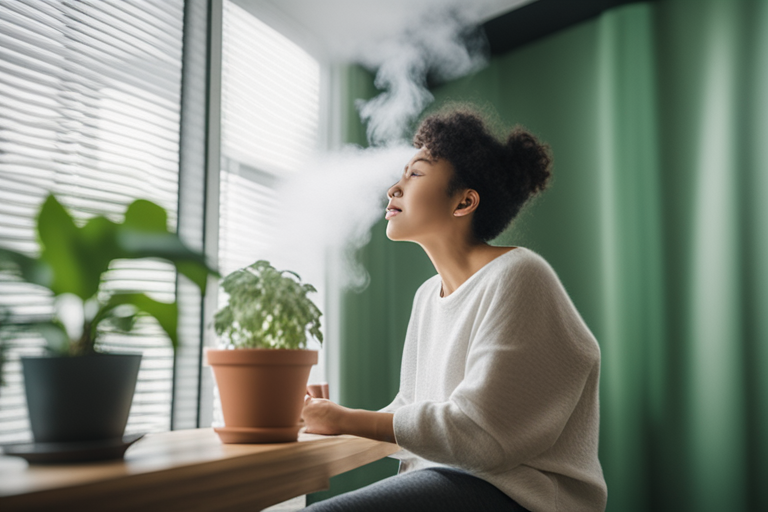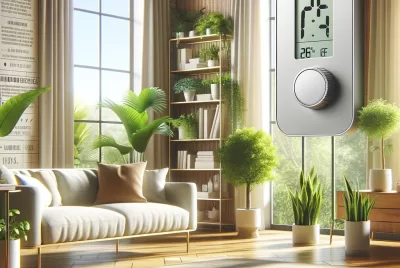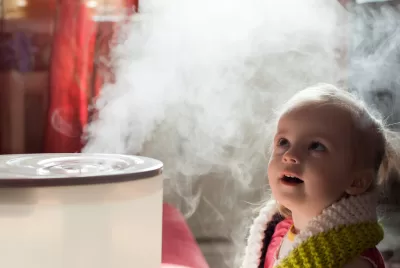What Do Humidifiers Do? The Ultimate Guide to Their Benefits and Usage
"We may earn a commission for purchases made using our links. Please see our disclosure to learn more."
What Do Humidifiers Do?
Are you wondering what humidifiers do? Humidifiers are devices that add moisture to the air, helping to alleviate a variety of health issues caused by dry air. In this article, we’ll explore the different types of humidifiers, their benefits and risks, and how to use and maintain them for optimal results.

The Health Benefits of Using a Humidifier
Humidifiers offer numerous health benefits, such as:

Alleviating dry skin
Dry air can cause your skin to become dry, itchy, and flaky. By adding moisture to the air, a humidifier can help keep your skin hydrated and healthy.
Preventing dry coughs
Dry air can irritate your throat and cause a dry, hacking cough. By adding moisture to the air, a humidifier can help reduce the frequency and severity of coughs.

Easing symptoms of allergies and asthma
If you suffer from allergies or asthma, dry air can exacerbate your symptoms. A humidifier can help reduce the amount of allergens in the air and ease respiratory symptoms.
What Do Humidifiers Do?
- Humidifiers add moisture to the air
- They can improve skin health, prevent dry coughs, and ease allergy and asthma symptoms
- Different types of humidifiers exist, and they require proper maintenance.

Different Types of Humidifiers
There are several types of humidifiers available, each with its own set of advantages and disadvantages.
Evaporative humidifiers
Evaporative humidifiers work by blowing air over a wet wick or filter. As the air passes over the wet surface, it picks up moisture and releases it into the air. These humidifiers are generally less expensive than other types and are effective at humidifying large areas.
Ultrasonic humidifiers
Ultrasonic humidifiers use high-frequency vibrations to create a fine mist that is released into the air. These humidifiers are quiet, energy-efficient, and great for small to medium-sized rooms.
Warm mist humidifiers
Warm mist humidifiers boil water to create steam, which is released into the air. These humidifiers are ideal for use in cold climates, as the warm mist can help raise the temperature in a room. However, they can be more expensive to operate and require more frequent cleaning.
How to Use a Humidifier Effectively
Using a humidifier may seem straightforward, but there are a few tips you should keep in mind to ensure that you’re using it effectively.
Tips for using a humidifier in the right size room
It’s important to choose the right size humidifier for the room you’re using it in. A humidifier that is too small won’t be effective, while one that is too large can over-humidify the room. As a general rule, a small humidifier is suitable for a bedroom, while a larger one is better for a living room or other large space.
Using the correct amount of water
Most humidifiers have a water tank that needs to be filled regularly. Be sure to follow the manufacturer’s instructions for filling the tank and avoid overfilling it, as this can cause the humidifier to malfunction.
Cleaning the humidifier regularly
To prevent the growth of mold and bacteria, it’s essential to clean your humidifier regularly. Be sure to follow the manufacturer’s instructions for cleaning and disinfecting the humidifier, and replace any filters or other parts as needed.
| Type of Humidifier | Advantages | Disadvantages |
|---|---|---|
| Evaporative | Inexpensive, effective at humidifying large areas | Can be noisy, requires frequent cleaning |
| Ultrasonic | Quiet, energy-efficient, great for small to medium-sized rooms | May produce white dust, requires regular cleaning and maintenance |
| Warm Mist | Ideal for use in cold climates, can help raise the temperature in a room | More expensive to operate, requires more frequent cleaning |
Features to Look for When Buying a Humidifier
When shopping for a humidifier, there are several features to look for to ensure that you’re getting a high-quality product.
Adjustable humidity settings
An adjustable humidity setting allows you to control the level of moisture in the air, which can be helpful if you live in an area with fluctuating humidity levels.
Automatic shut-off
An automatic shut-off feature turns off the humidifier when the water level gets too low, preventing damage to the unit and ensuring safety.
Quiet operation
If you plan to use your humidifier in a bedroom or other quiet space, look for a unit that operates quietly to avoid disturbing your sleep or work.

Maintenance of a Humidifier
To ensure that your humidifier continues to operate effectively, it’s important to perform regular maintenance.
Cleaning and replacing filters and other parts
Cleaning your humidifier regularly is essential to prevent mold and bacteria growth. Be sure to follow the manufacturer’s instructions for cleaning and disinfecting the unit, and replace any filters or other parts as needed.
Case Study: How a Humidifier Helped John with His Asthma
John is a 40-year-old man who has been suffering from asthma for the past 10 years. He has been using inhalers and medication to manage his symptoms, but they never seemed to go away completely. John’s doctor suggested using a humidifier in his bedroom at night to see if it would help ease his symptoms.
John purchased an ultrasonic humidifier and started using it every night. Within a few days, he noticed a significant improvement in his breathing. His coughing and wheezing had reduced, and he was finally able to get a good night’s sleep. John believes that the humidifier has made a huge difference in his quality of life.
John has also noticed that his skin feels less dry and itchy, which he attributes to the use of the humidifier. He has recommended it to his friends and family who suffer from allergies and asthma, and they have also seen positive results.
John has made sure to clean the humidifier regularly and fill it with distilled water to prevent any mold growth. He plans to continue using the humidifier and is grateful for the relief it has provided him.
Potential Risks of Using a Humidifier
While there are many benefits to using a humidifier, there are also a few potential risks to keep in mind.
Burns and fire hazards
Warm mist humidifiers can pose a risk of burns or fire if not used properly. Be sure to follow the manufacturer’s instructions and keep the humidifier away from children and flammable materials.
Over-humidification and mold growth
If you over-humidify a room, you can create an environment that is conducive to mold growth. Be sure to follow the manufacturer’s instructions for using your humidifier and avoid over-humidifying the room.
Other potential issues
Some people may experience health issues such as nosebleeds or respiratory problems when using a humidifier. If you experience any adverse effects, stop using the humidifier immediately and consult with a healthcare professional.
Conclusion
In conclusion, humidifiers offer numerous health benefits, but it’s important to use them correctly and perform regular maintenance to avoid potential risks. Consider the size of the room, the type of humidifier, and the features you need when shopping for a humidifier. Remember to follow the manufacturer’s instructions for use and maintenance, and be aware of potential risks such as burns, over-humidification, and mold growth. With a high-quality humidifier and proper usage, you can say goodbye to dry skin, coughs, and allergies, and enjoy the benefits of moist, healthy air.
Frequently Asked Questions
What do humidifiers do for your home?
They add moisture to the air to improve indoor air quality.
Who can benefit from using a humidifier?
Anyone who lives in a dry climate or suffers from dry skin or respiratory issues.
How do humidifiers work?
They emit water vapor into the air, raising the humidity level and making the air more comfortable to breathe.
What types of humidifiers are available?
There are cool mist, warm mist, ultrasonic, and evaporative humidifiers.
What are the benefits of using a humidifier?
They can alleviate dry skin, reduce snoring, and help prevent respiratory infections.
What if I don’t want to clean my humidifier often?
Look for a humidifier with easy-to-clean parts or a self-cleaning function to make maintenance easier.




